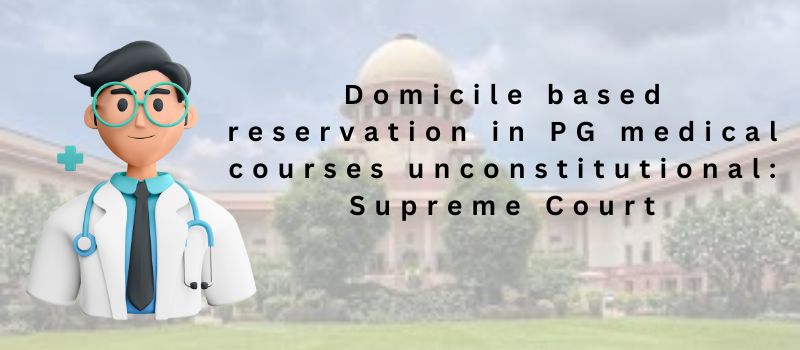In a landmark judgment, the Supreme Court of India has ruled that domicile-based reservations for postgraduate medical courses are unconstitutional, citing a violation of Article 14 of the Constitution, which ensures equality before the law.
Key Highlights of the Judgment:
- Domicile-Based Reservations are Unconstitutional:
- Justice Sudhanshu Dhulia stated that reservations based on residence in PG medical seats violate Article 14.
- He emphasized that admissions must be strictly based on merit.
- India is a Single Domicile for Pursuing Trade & Education:
- The judgment reaffirmed that all Indian citizens have the right to pursue their education anywhere in India without domicile restrictions at the postgraduate level.
- State-specific reservations in higher education, especially in PG courses, were deemed arbitrary and unconstitutional.
- MBBS Level Reservations May Still Exist:
- The ruling clarified that domicile-based reservations may be justified at the MBBS level in certain cases.
- However, higher education (PG admissions) must be merit-based.
- No Impact on Already Admitted Students:
- The Supreme Court upheld the admissions of students already enrolled under domicile-based quotas.
- Those who are already pursuing courses will not be affected by this decision.
Implications of the Ruling:
✅ Future PG medical admissions will be based on merit only.
✅ States can no longer implement domicile-based quotas for PG medical courses.
✅ Existing reservations granted under domicile criteria remain valid.
✅ Potential impact on state policy regarding MBBS and UG admissions.
This ruling reinforces the principle of equal opportunity and is expected to bring significant reforms in medical education across India.
